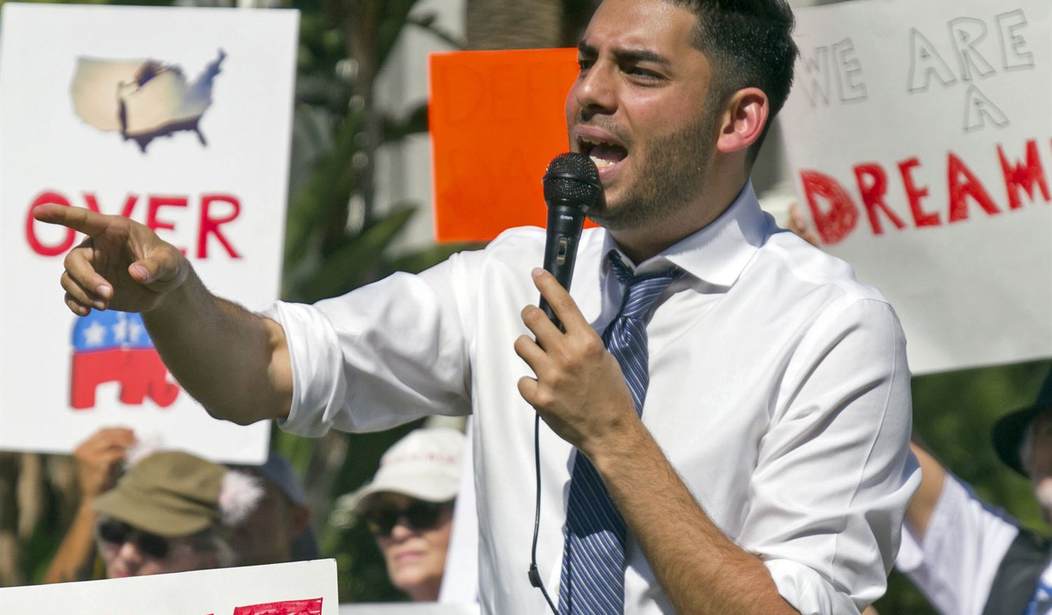The fact that two Muslims are running for Congress in California is an interesting snapshot of the changing dynamic and demographics of American politics.
While candidates Ammar Campa-Najjar (D) and Omar Qudrat (R) are running as challengers in southern California’s 50th and 43rd Districts respectively, and both come from Muslim heritage with Qudrat proudly noting his Afghani immigrant parents on his web site, that’s where most of the similarities end.
With the candidates’ respective districts around San Diego with its large Navy population, military issues abound on both the candidates’ websites. Quadrat is a veteran, serving on behalf of the US in Afghanistan (the country in which his parents were born and from which they emigrated to the US decades ago) and makes a special point to advocate for veteran affairs. Campa-Najjar addresses veteran affairs and adds to that issues more aligned with a liberal viewpoint including transgender and gay and lesbian people serving in the military.
In addition to military issues, Campa-Najjar’s positions focus on women’s rights, healthcare, jobs, immigration, environment, election reform and education. Qudrat has a leaner and more targeted agenda including defending the nation, education, the economy, and homelessness.
With the exception of Qudrat’s focus on defending the nation as it relates to terror and other challenges, neither candidate focuses substantially on international issues.
Both candidates speak of not being bound to their party, and/or disagreeing with their party leadership on certain things, and focus on representing their respective districts. While there are many important domestic and international issues that each could focus on, living in Israel with a degree in Middle Eastern affairs, I often look at candidates and their platforms through the prism of how it relates to Israel and the Middle East because that’s what I know most about, and that’s what I am most qualified to measure another person’s knowledge and subsequent policies. However, I also know that middle Eastern Affairs are integrally related to other global issues, to economic issues, etc., so I am not a single-issue voter by any stretch.
Recommended
In respective articles in an Israeli daily, Qudrat speaks of Israel in a glowing fashion, about his visiting Israel while serving in the US military and referring to Jerusalem as magical. He speaks of attending the mainstream AIPAC policy conference, the main pro-Israel lobbying group in the US. Campa-Najjar on the other hand is endorsed by the left-wing J Street. In the same Israeli daily, he is cited for being moderate on Israeli-Palestinian issues.
While each have espoused support for Israel for different reasons and from different perspectives, Campa-Najjar is also on record as being decidedly unsupportive of Israel, and has been called out for whitewashing over his family’s personal background on the issue. (For an in depth profile go to this article.) The fact is that on his website he only mentions his Christian mother, neglecting (or even hiding) his father’s background as an active Muslim leader in the terrorist PLO, and even his grandfather’s role as a mastermind of the 1972 Munich terrorist massacre.
By way of fairness, when called out on this he says he rejects his grandfather’s actions but does so in neutral language, speaking of the “tragedy” of the murder of civilian Israeli athletes as if it were an accident and not one of the most infamous terrorist acts in modern memory. However, skeptics note that he misrepresents himself simply as the son of a Catholic woman. Certainly, there is no mention of his family’s Middle Eastern much less its terrorist background on his website, which leads one to wonder if people would (or should) be as accepting of the grandson of a mastermind of 9/11 running for Congress two to three decades from now.
While it may not be fair to associate him with the terrorist acts and affiliation of his father and grandfather, it does give voters pause as its been suggested that with his background, serving on the Armed Forces Committee for instance could be a national security risk.
Aside than the paradoxes here, and others, comparing the candidates on the issue of terrorism shows a stark difference. In the context of making the military strong, Campa-Najjar somehow links human rights and terror, saying “We must uphold human rights globally and remain a vigilant force against terrorism” as if the lack of human rights might be a cause, or an excuse, for terror.
By comparison, Qudrat cites his own military and counter terrorist background noting, “Terrorist networks are on the rise” and is credited for creating “the first-of-its kind counter-terrorism strategy for every major and medium-sized American city that will help prevent homeland terrorist attacks.” I haven’t read his strategy but it sounds at least as if he’s forward thinking and taking on an issue that has serious domestic and international repercussions.
Regardless of the outcome of their respective elections, in many ways these are pivotal in the evolution of the U.S. democracy. Campa-Najjar could be the latest in a growing trend of Muslims elected as Democrats and Qudrat could become the first Muslim elected as a Republican.

























Join the conversation as a VIP Member